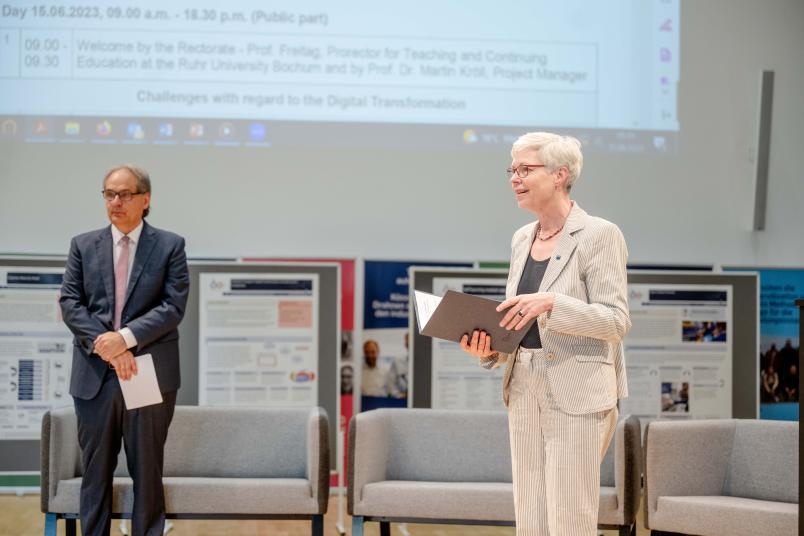
Digitization
“Digital Coach” Receives Award for Best Practice Project
The project shows how companies can keep pace with digitization and use it for their purpose.
For three years, an international consortium led by the Institute of Work Science at Ruhr University Bochum, Germany, developed measures to help companies keep pace with digitization. The “Digital Coach” project, funded by the European Union, was so successful that it has now been recognized as a best practice project.
Digital coach accompanies employees
New digital technologies, in particular artificial intelligence (AI), require adjustments to the corporate culture, the redesign of work processes and the development and expansion of new skills. “In the project, we have therefore developed the role of the Digital Coach,” project leadership Professor Martin Kröll explains. “This person communicates changes effectively, involves employees and helps to overcome resistance to new technologies.”
The target group are people responsible for educational tasks in organizations, such as personnel developers and trainers. However, actors who promote digital transformation in companies, employees of vocational schools, external training centers and learning and research factories at universities can also benefit from the Digital Coach qualification programme. Digital Coaches acquire the necessary skills in eleven self-study modules which have specifically been developed and evaluated.
Empirical studies
Several comprehensive empirical studies were conducted based on the EU project: In more than 15 small and medium-sized enterprises from Bulgaria, Germany, Greece and Hungary, the researchers examined the so-called ADAPTION maturity model to determine the state of digital transformation in organizations. The implementation of ADAPTION was scientifically monitored, and feedback was collected. “We have seen that the ADAPTION model also examines aspects of the extent to which human-centered work performance can be guaranteed in connection with technological innovations such as AI,” Martin Kröll reports.
Another study was dedicated to the further development of the learning factory approach. A comparison of different learning factories in the EU led, among other things, to quality standards. “At this point, the EU project has highlighted the added value of interdisciplinary cooperation at European level, states Professor Bernd Kuhlenkötter, Head of ZESS and the Learning and Research Factory at Ruhr University Bochum. In addition, the establishment of the field of digital coaching was examined. The aim was to uncover and analyze potentials and resistances. 38 people took part in the survey, which revealed that it is realistic that the Digital Coach can be established as a process promoter in an organization. “However, it is important that there is clarity about the services offered by the Digital Coach and that the responsible members of the organization are aware of a current crisis situation,” Kröll explains.